Keynote Speakers
Tenzin Gyatso
His Holiness the 14th Dalai Lama
Tenzin Gyatso, the 14th Dalai Lama, is the leader of Tibetan Buddhism, and a spiritual leader revered worldwide. He was born on July 6, 1935, in a small village called Taktser in northeastern Tibet. Born to a peasant family, he was recognized at the age of two, in accordance with Tibetan tradition, as the reincarnation of his predecessor, the 13th Dalai Lama. The Dalai Lamas are manifestations of the Buddha of Compassion, who choose to reincarnate for the purpose of serving human beings. Winner of the Nobel Prize for Peace in 1989, he is universally respected as a spokesman for the compassionate and peaceful resolution of human conflict.
He has traveled extensively, speaking on subjects including universal responsibility, love, compassion, and kindness. Less well known is his intense personal interest in the sciences; he has said that if he were not a monk, he would have liked to be an engineer. As a youth in Lhasa it was he who was called on to fix broken machinery in the Potola Palace, be it a clock or a car. He has a vigorous interest in learning the newest developments in science, and brings to bear both a voice for the humanistic implications of the findings, and a high degree of intuitive methodological sophistication.
Richard J. Davidson
University of Wisconsin - Madison
Science and Society: An Interactive Dialogue with His Holiness the Dalai Lama
This session will involve an interactive dialogue regarding science and society between His Holiness the Dalai Lama and the panelists, Dr. Richard Davidson and Dr. Amishi Jha. The following questions will serve as anchoring themes. As we reflect on the value and benefits of the ongoing 25-year dialogue between Buddhists and scientists, what are the most surprising advances and challenges that have emerged? As contemplative practices are increasingly being incorporated into major sectors of society, from healthcare and education to business and military applications, are there any guiding principles that should be considered in this proliferation?
Richard J. Davidson, PhD, is the founder and chair of the Center for Investigating Healthy Minds at the Waisman Center, University of Wisconsin-Madison, where he is also director of the Waisman Laboratory for Brain Imaging and Behavior. He was educated at New York University and Harvard University, where he received his bachelor's degree and PhD, respectively, in psychology. Over the course of his research career, he has focused on the relationship between brain and emotion. He is currently the William James professor and Vilas research professor of psychology and psychiatry at the University of Wisconsin. He is co-author or editor of 13 books, including Visions of Compassion: Western Scientists and Tibetan Buddhists Examine Human Nature and The Handbook of Affective Science. He is the author (with Sharon Begley) of The Emotional Life of Your Brain, which was published by Penguin in 2012. He has published more than 300 chapters and journal articles, and is the recipient of numerous awards for his work, including the Research Scientist Award from the National Institute of Mental Health, the Distinguished Scientific Contribution Award from the American Psychological Association, and election to the American Academy of Arts and Sciences. He has served on the board of directors for the Mind & Life Institute since 1992. In 2006, he was named one of the 100 most influential people in the world by Time Magazine; that same year, he received the first Mani Bhaumik Award from UCLA for advances in the understanding of the brain and the conscious mind in healing. In 2011, he received the Paul D. MacLean Award for outstanding neuroscience research in psychosomatic medicine. He serves on the scientific advisory board at the Max Planck Institute for Human Cognitive and Brain Sciences in Leipzig, and as chair of the psychology section of the American Association for the Advancement of Science.
David Germano
University of Virginia
Contemplation in Contexts: Tibetan Buddhist Meditation Across the Boundaries of the Humanities and Sciences
This talk explores a central challenge in contemplative sciences - the roles of so-called "contexts" in contemplation and the possibility of consilience between the humanities and sciences in contemplative research. It will focus on a specific contemplative tradition, namely Tibetan Buddhist practices, to address this in a deeply contextual manner. This is particularly appropriate given that it constitutes one of the world's most diverse contemplative traditions, as well as the subject of considerable scientific investigation and scholarly analysis. In its discourses and practices of emptiness and interdependent origination, Buddhism explores the way each thing in the world has constitutive threads trailing off into impossible complexities. Contemplation is no exception, with endless numbers of constitutive "contexts" for each practice and experience that far escape our scope of understanding. Given the central and constitutive character of contexts, it raises questions about our too quick decisions about what is core and context in contemplative research. The talk will explore twelve different contexts - which are often prescribed in detail in traditional literature - and argue that scientists and practitioners alike tend to take contemplation out of such "contexts", and thus make assumptions that throw our subsequent conclusions into question in the process.
David Germano, PhD, teaches and researches Tibetan and Buddhist Studies at the University of Virginia. He is the director of UVa's Contemplative Sciences Center (www.uvacontemplation.org); as well as the Tibetan and Himalayan Library (www.thlib.org), Tibet Center (www.uvatibetcenter.org), and SHANTI (Sciences, Humanities and the Arts Network of Technological Initiatives, www.shanti.virginia.edu). His personal research focuses on tantric, philosophical, and contemplative traditions in Tibet. He has lived for many years in Tibetan communities in Asia, in the context of which he has also worked extensively on programs of scholarly engagement, community service, and participatory knowledge initiatives. He has extensive experience with the development of digital technology for use in the humanities and education. He is currently focused on the exploration of contemplative ideas, values, and practices involving blended humanistic and scientific methodologies as well as new applications in diverse fields.
Arianna Huffington
Huffington Post Media Group
Thrive: The Third Metric to Redefining Success and Creating a Life of Well-Being, Wisdom and Wonder
"What is a good life?" has been a question asked by philosophers going back to the ancient Greeks. But somewhere along the line we abandoned the question and shifted our attention to how much money we can make, how big a house we can buy, and how high we can climb up the career ladder. In fact, at this point, success, money, and power have practically become synonymous in the minds of many. But over the long term, money and power by themselves are like a two-legged stool-you can balance on them for a while, but eventually you're going to topple over. And more and more people-very successful people-are toppling over. The good news is, science has caught up to ancient wisdom, and the results are overwhelming and unambiguous. To live the lives we truly want and deserve, and not just the lives we settle for, we need a "third metric," a measure of success that goes beyond the two metrics of money and power, and consists of four pillars: well-being, wisdom, wonder, and giving.
Arianna Huffington is the chair, president, and editor-in-chief of the Huffington Post Media Group, a nationally syndicated columnist, and author of thirteen books. In May 2005, she launched The Huffington Post, a news and blog site that quickly became one of the most widely read, linked to, and frequently cited media brands on the Internet. In 2012, the site won a Pulitzer Prize for national reporting. In 2013, she was named to the Forbes Most Powerful Women list. In 2006, and again in 2011, she was named to the Time 100, Time magazine's list of the world's 100 most influential people. Originally from Greece, she moved to England when she was 16 and graduated from Cambridge University with an M.A. in economics. At 21, she became president of the famed debating society, the Cambridge Union. She serves on several boards, including EL PAIS, PRISA, the Center for Public Integrity, and the Committee to Protect Journalists.
Her 14th book, The Success Myth: The Third Metric Beyond Money and Power, will be published by Crown in March 2014.
Amishi Jha
University of Miami
Successes and Challenges of Mindfulness Training in Applied Settings
The science and practice of mindfulness-based interventions has witnessed exponential growth in recent years with applications in diverse settings including healthcare, education, the workplace, and the military. Such expansion raises complex and engaging questions for the emerging field of contemplative science. In this panel, we discuss questions such as: What do we know and what are the limits of our current evidence base regarding the application of mindfulness in diverse settings? What are the active ingredients of mindfulness-based interventions? What theories regarding the core mechanisms of change are supported by data? What is known about how to train teachers to deliver mindfulness-based interventions? We engage these topics with a specific focus on investigations of mindfulness-based cognitive therapy and short-form mindfulness-based training programs.
Science and Society: An Interactive Dialogue with His Holiness the Dalai Lama
This session will involve an interactive dialogue regarding science and society between His Holiness the Dalai Lama and the panelists, Dr. Richard Davidson and Dr. Amishi Jha. The following questions will serve as anchoring themes. As we reflect on the value and benefits of the ongoing 25-year dialogue between Buddhists and scientists, what are the most surprising advances and challenges that have emerged? As contemplative practices are increasingly being incorporated into major sectors of society, from healthcare and education to business and military applications, are there any guiding principles that should be considered in this proliferation?
Amishi Jha is associate professor of psychology at the University of Miami, and director of contemplative neuroscience for the Mindfulness Research and Practice Initiative, prior to which she was an assistant professor at the Center for Cognitive Neuroscience, University of Pennsylvania. She received her PhD from the University of California-Davis in 1998, and received her post-doctoral training in the Brain Imaging and Analysis Center at Duke University in functional neuroimaging. She has received several awards for teaching and innovation in science, including selection as a Poptech Science and Public Leadership Fellow in 2010. She studies the neural bases of attention and the effects of mindfulness-based training programs on cognition, emotion, and resilience. With grants from the Department of Defense, and several private foundations, she has been systematically investigating the potential applications of mindfulness training in education, corporations, and the military. Her work has been featured in the Journal of Cognitive Neuroscience, Emotion, and Brain Research, and she serves on the editorial boards of Journal of Experimental Psychology: General, Frontiers in Neuroscience, and Frontiers in Psychology.
Tania Singer
The Max Planck Institute for Human Cognitive and Brain Sciences
Insights from Social Neurosciences: From Training the Brain in Compassion to a Caring Society
In the last decades our society has faced many global and economic problems that call for new solutions and change. Emerging fields such as affective-social and contemplative neurosciences have produced promising findings that may help inform such necessary changes. For example, plasticity research has suggested that training of mental capacities such as mindfulness and compassion is indeed effective and leads to changes in brain functions associated with increases in positive affect, pro-social behavior, and better health. After summarizing findings on short-term training studies focusing on training empathy and compassion, I will introduce the ReSource Project, a large-scale multi-disciplinary and methodological one-year secular mental training program that aims at the cultivation of attention, interoceptive awareness, perspective taking on self and others, meta-cognition, prosocial motivation, and emotion regulation. This study also includes new ways of training the mind through contemplative intersubjective dyads supported by a web platform allowing for everyday practice with another person. I will conclude by suggesting ways that the cultivation of mental faculties and compassion could help formulate new economic models aiming at reintroducing secular ethics in society, emphasizing the need to step into a global responsibility through personal change.
Tania Singer, PhD, has been the director of the department of social neuroscience at the Max Planck Institute for Human Cognitive and Brain Sciences in Leipzig since 2010. After receiving her PhD in psychology in 2000 at the Max Planck Institute for Human Development in Berlin, she became a post-doctoral fellow at the same institution (and later, at the Wellcome Department of Imaging Neuroscience), as well as at the Institute of Cognitive Neuroscience in London. In 2006, she went to the University of Zurich to accept a position as assistant professor (and later, as inaugural chair) of social neuroscience and neuroeconomics, and as codirector of the Laboratory for Social and Neural Systems Research. Her research focuses on the foundations of human social behavior and the neuronal, developmental, and hormonal mechanisms underlying social cognition and emotions (e. g, empathy, compassion, and fairness). Moreover, she investigates the psychological and neuroscientific effects of compassion and meditation training, and other mental training techniques. Her research has been published in many renowned journals (e.g. Science, Nature), and is the principal investigator of the ReSource project, a one-year longitudinal mental training study. She holds a cooperative research position with Dennis Snower from the Kiel Institute for the World Economy on the topic of caring economics, which is funded by the Institute of New Economic Thinking. She is a board member of the Mind & Life Institute in Hadley, Massachusetts, and an advisory board member of Mind and Life Europe.
Diana Chapman Walsh
President Emerita - Wellesley College
Education for Ethical and Compassionate Leadership
We live in a time of increasingly fragile social institutions: a political system distorted by increases in inequality; financial markets that create unsustainable debt; an economy that drives a scarcity mentality and ever-escalating consumption, diminishing the quality of time-starved and stress-filled lives. We have crises in health care, education, and in the life-support systems of planet Earth. To address these intertwined problems, we will need a shift in consciousness and a new kind of leadership in every social sector-next-generation leaders who are equal to today's challenges in all their complexity and who are skillful at leading themselves and others with compassion and equanimity. This talk will synthesize some of the current thinking about the key elements of education for the kind of compassionate and ethical leadership that we sorely need now, and too often lack.
Diana Chapman Walsh currently serves on the governing boards of the Massachusetts Institute of Technology, the Broad Institute of MIT and Harvard, the Kaiser Family Foundation, and the Mind & Life Institute. She is an emerita trustee of Amherst College, having served on the board from 1998 to 2010. Her term as president of Wellesley College (1993-2007) was marked by educational innovation and a distinctive style of reflective leadership rooted in a network of resilient partnerships and anchored in the conviction that trustworthy leadership starts from within. Before assuming the Wellesley presidency, she was Norman Professor of Pubic Health and chair of the department of health and social behavior at Harvard School of Public Health, and, prior to that, Professor of Public Health at Boston University. She has published widely on social factors affecting the health of populations.
Master Lecturers, Contemplative Teachers, and Artists
Linda-Susan Beard
Bryn Mawr College
"Veni Sancte Spiritus"
This is an opportunity to meditate using some of the sung mantric refrains of the Taize Community of France. Participants will learn very simple chants and a Taize canon ("Veni Creator"). We will end with the familiar canon: "Dona Nobis Pacem."
"Lectio Divina" and Mary Oliver's "Wild Geese"
Lectio is an ancient practice of Western monasticism that invites one to read slowly and deliberately, savoring the word and allowing it to speak to one's center. One begins with a brief passage (from a sacred scripture or other text) and a foundational trust that a word or short phrase from the text is speaking directly to one's life experience. Letting go of the temptation to "read" for comprehension, one approaches the text with a radical openness to whatever it may reveal. Once the word has chosen you, it becomes a mantra. We will adapt this practice to a poem by Mary Oliver. For the last five minutes of the session participants will be invited to journal about their experience.
"Lectio Divina" and Mary Oliver's "The Summer Day"
Lectio is an ancient practice of Western monasticism that invites one to read slowly and deliberately, savoring the word and allowing it to speak to one's center. One begins with a brief passage (from a sacred scripture or other text) and a foundational trust that a word or short phrase from the text is speaking directly to one's life experience. Letting go of the temptation to "read" for comprehension, one approaches the text with a radical openness to whatever it may reveal. Once the word has chosen you, it becomes a mantra. We will adapt this practice to a poem by Mary Oliver. For the last five minutes of the session participants will be invited to journal about their experience.
Linda-Susan Beard, who received her PhD from Cornell, negotiates between and among the worlds of African-American, South African, and post-colonial literatures. She teaches courses on post-apartheid literature and literary and historical reimaginings of transatlantic slavery (such as Toni Morrison and the art of narrative conjure), as well as introductory courses in English and African literatures that examine the dynamics of canon formation. She is editing the first comprehensive volume of the letters of Bessie Head, about whom she has written essays and given conference papers for 25 years. She is also involved in the new area of contemplative intelligence, having been in the first group of contemplative fellows chosen by the ACLS and funded by the Cummings and Fetzer Foundations. King's College recently awarded her an honorary doctorate for her work in integrating contemplative and intellectual ways of knowing. She served for five years as faculty coordinator of the Mellon scholars program and chair of the Africana studies program.
Paula Arai
Louisiana State University
Painting Enlightenment: Zen and the Art of Perception, Science, and the Heart Sutra
Scientists and artists are often the vanguard of civilizational developments. They serve as seers who envision a trajectory of growth and innovators who develop new ways to respond to their unfolding understandings of reality. The roles of scientist and artist converge in the paintings of Iwasaki Tsuneo 岩崎常男 (1917-2002) who, on retiring from a career as a research biologist, created an artistic genre to express the resonances he saw between Buddhist and scientific investigations about the nature of reality. Iwasaki’s originality lay in melding insights from his scientific expertise with a Buddhist tradition of contemplative calligraphy.
Integrating sacred words of a Buddhist text prized for liberative power with images both microscopic and cosmic, the Zen ink paintings on exhibit offer visual counsel on how reality can be perceived through the lens of wisdom to see the realm of compassion. The paintings encode metaphysical content into images drawn from scientific insights, nature, and Buddhist symbology by shaping the Chinese pictographs of the Heart Sutra to communicate the wisdom that pulses through daily life. Expressing the interdependent, impermanent, and empty nature of phenomena, Iwasaki delivers profound insights through his evocative images. By merging the spirit of the investigative traditions of science and Buddhism, the paintings reveal how the art of perception can generate healing insights. With the compassionate aim of relieving suffering, these paintings offer visual wisdom for a multicultural, scientifically informed, image-driven world.
• Please feel free to sit in contemplative silence as you view Iwasaki’s magnum opus:
"Big Bang: E = mc2." (500 x 180 cm)
• You are also invited to try the contemplative practice of brushed calligraphic sutra copying.
Paula Arai, author of Women Living Zen: Japanese Buddhist Nuns (Oxford University Press, 1999) and Bringing Zen Home: The Healing Heart of Japanese Buddhist Women’s Rituals (University of Hawaii Press, 2011), received her Ph.D. in Buddhist Studies from Harvard University. Her current project, Painting Enlightenment, includes a book and exhibitions of paintings by a Japanese contemplative scientist that encodes Buddhist metaphysics into scientific and everyday images. She has also published her research on Japanese Buddhism in numerous journal articles, chapters in edited volumes, and regularly presents at national and international venues. Her research has received generous support from Fulbright and American Council of Learned Societies Fellowships, and grants from the Mellon Foundation, Reischauer Institute of Harvard University, Vanderbilt University, Hong Kong University of Science & Technology, Carleton College, the American Academy of Religion, and ATLAS (Awards to Louisiana Artists and Scholars). She is currently an associate professor of Buddhist Studies at Louisiana State University.
Sarah Bowen
University of Washington - Seattle
Buddhism, Behaviorism and the Brain: Towards a Better Understanding of the Mechanisms and Mitigation of Craving, Grasping, and Addiction
The seemingly intractable behavioral cycles and suffering of addiction offer a vivid and painful illustration of the necessity and challenge of behavior change. Decades of tireless research on the nature of and mechanisms underlying addiction have led to scientific and clinical advances, yet relapse remains the most common outcome for individuals struggling with addictive behaviors. Recently, scientists have turned attention to the integration of ancient and contemporary theories and practices to better understanding the learning processes that may underlie craving and addiction, and to develop increasingly effective ways to support sustainable behavior change. This presentation will explore the integration of Buddhist understanding of the nature of craving and attachment with modern behavioral psychology, cognitive neuroscience and fMRI neuroimaging. We will explore specific classical and operant conditioning-based mechanisms and brain regions implicated in the craving/aversion process underlying habit formation, relapse cycles, and behavior change. We will look at clinical applications based on such models, and will briefly review the evidence base from clinical studies of smoking cessation and alcohol and drug addiction.
Sarah Bowen is an acting assistant professor in the department of psychiatry and behavioral sciences at the University of Washington in Seattle. Her research and clinical work has focused primarily on the integration of meditation practice and mindfulness-based approaches for addictive behaviors into traditional Western cognitive therapy. The primary focus of her personal, clinical, and research practices is the exploration of processes underlying behavior change, and adaptation of treatments and practices to reach a wide and diverse patient and client population. In addition to authoring numerous journal articles and book chapters in this area, she is the lead author of Mindfulness-Based Relapse Prevention for Addictive Behaviors: A Clinician's Guide. She has been practicing in the Theravada tradition for more than 10 years, and has facilitated mindfulness-based relapse prevention groups in private practice, veterans' medical centers, county treatment agencies, and prisons. She offers professional trainings to researchers and clinicians in the United States and internationally, and has a particular interest in adapting and disseminating mindfulness-based treatment for dual-diagnosis and underserved populations.
Judson Brewer
Yale University
Buddhism, Behaviorism and the Brain: Towards a Better Understanding of the Mechanisms and Mitigation of Craving, Grasping, and Addiction
The seemingly intractable behavioral cycles and suffering of addiction offer a vivid and painful illustration of the necessity and challenge of behavior change. Decades of tireless research on the nature of and mechanisms underlying addiction have led to scientific and clinical advances, yet relapse remains the most common outcome for individuals struggling with addictive behaviors. Recently, scientists have turned attention to the integration of ancient and contemporary theories and practices to better understanding the learning processes that may underlie craving and addiction, and to develop increasingly effective ways to support sustainable behavior change. This presentation will explore the integration of Buddhist understanding of the nature of craving and attachment with modern behavioral psychology, cognitive neuroscience and fMRI neuroimaging. We will explore specific classical and operant conditioning-based mechanisms and brain regions implicated in the craving/aversion process underlying habit formation, relapse cycles, and behavior change. We will look at clinical applications based on such models, and will briefly review the evidence base from clinical studies of smoking cessation and alcohol and drug addiction.
Judson Brewer, MD, PhD, an assistant professor of psychiatry at the Yale School of Medicine and medical director of the Yale Therapeutic Neuroscience Clinic, is a board-certified psychiatrist who has been investigating the neural underpinnings of mindfulness training and its clinical efficacy for disorders such as addictions. He received his bachelor's degree from Princeton University, and his MD and PhD degrees from Washington University in St. Louis, where his thesis work focused on molecular mechanisms of stress hormone regulation of the immune system. After training in mindfulness meditation during medical and graduate school, he shifted his focus from animal models of stress to the elucidation of neurobiological mechanisms underlying the interface between stress, mindfulness, and the addictive process. A pioneer in assessing the efficacy of mindfulness training for addictions, he performed some of the first clinical trials for alcohol and cocaine dependence, followed by the first randomized clinical trial for nicotine dependence, in which he showed that mindfulness training was twice as effective as the "gold standard" treatment for smoking cessation. His laboratory has also delineated key psychological mechanisms of how mindfulness training helps individuals change their relationship to craving. His lab is currently working to delineate key brain activation patterns during meditation, and to link these to physiological and behavioral measures using methods such as real-time fMRI neurofeedback and experience sampling. His research is supported by the National Institutes of Health, and has been featured internationally in media outlets such as TEDx, Forbes magazine, NPR, and the BBC.
Willoughby Britton
Brown University
The Varieties of Contemplative Experience: Context Matters
Buddhist-derived meditation practices, particularly mindfulness meditation, are being applied to medical conditions, psychiatric disorders, schools and businesses for stress reduction and the promotion of wellbeing. These secular applications are largely contextualized in a medical health model, without much attention to or knowledge of traditional Buddhist texts, which carefully outline contemplative practices trajectories and associated experiences. As a result, the widespread application of meditation in clinical and secular settings is proceeding without much knowledge of the full range of experiences that can arise in the context of practice. As more people begin to meditate in the West, more are encountering meditation experiences that are well-documented in Buddhist texts yet are unexpected in secular contexts. Without adequate knowledge of the range of possible meditation-related experiences, there is a risk that in the secular applications-where meditation training is divorced from its traditional religious, social, and cultural contexts-these experiences could be misunderstood, pathologized or improperly managed. In order to thoroughly understand the contemplative path and all that it entails, our research team interviewed more than 60 well-known meditation teachers, practitioners and Buddhist scholars about the range of contemplative experiences that can arise in the context of meditation practices.
Willoughby Britton, PhD, holds a bachelor of arts in neuroscience and a doctorate in clinical psychology. She is currently assistant professor in the departments of psychiatry and public health at Brown Medical School, and research director of the Brown University Contemplative Studies Initiative. She received sleep/EEG training at Harvard Medical School, and was a research fellow at the National Institute on Drug Abuse (NIDA/NIH) and Andrew Weil's program in integrative medicine. She spent several years in Asia studying meditative techniques and received her mindfulness instructor certification training at the Center for Mindfulness at University of Massachusetts Medical School. With the aim of investigating the link between contemplative practices, brain function, sleep, attention, and affective disturbances, she has conducted federally funded Randomized Control Trials on the neurophysiological effects of Mindfulness Based Cognitive Therapy (MBCT) in depression, and education-based mindfulness training in middle school and university students in comparison to music and dance. She is also investigating the question: Which contemplative practices are best (or worst) suited for which populations? She is conducting a NIH-funded mindfulness "dismantling" study comparing the effects of shamatha and vipassana practices on attention, cortical arousal, and affective disturbances. In collaboration with Jack Kornfield and several other teachers, she is conducting research on the adverse effects and difficult stages of the contemplative path, which she presented to the Dalai Lama at the Mind and Life XXIV Dialogues.
Sona Dimidjian
University of Colorado - Boulder
Successes and Challenges of Mindfulness Training in Applied Settings
The science and practice of mindfulness-based interventions has witnessed exponential growth in recent years with applications in diverse settings including healthcare, education, the workplace, and the military. Such expansion raises complex and engaging questions for the emerging field of contemplative science. In this panel, we discuss questions such as: What do we know and what are the limits of our current evidence base regarding the application of mindfulness in diverse settings? What are the active ingredients of mindfulness-based interventions? What theories regarding the core mechanisms of change are supported by data? What is known about how to train teachers to deliver mindfulness-based interventions? We engage these topics with a specific focus on investigations of mindfulness-based cognitive therapy and short-form mindfulness-based training programs.
Sona Dimidjian, PhD received her PhD in clinical psychology from the University of Washington in 2005. She joined the faculty in the department of psychology and neuroscience at the University of Colorado at Boulder in 2006. Her research addresses the treatment and prevention of depression, with a particular focus on the mental health of women during pregnancy and postpartum. She is a leading expert in cognitive and behavioral approaches to treating and preventing depression, and in the clinical application of contemplative practices, such as meditation and yoga. Current projects in her lab are focused on the development of preventive interventions with at-risk pregnant women; the dissemination of evidence-based psychotherapy; and, in collaboration with Tor Wager, on the neuroscience of compassion and interventions designed to increase compassionate behavior.
Brooke Dodson-Lavelle
Mind & Life Institute
A Call to Care: MLI's New Ethics, Education and Human Development Initiative
Inspired by His Holiness the Dalai Lama's call to design a curriculum and pedagogy in "secular ethics", the Mind & Life Institute identified an important opportunity to join the growing movement of educators, scientists, and contemplatives engaged in helping our children deepen their capacities for care and compassion. Our program, entitled A Call to Care, presents a model for enhancing ethical sensitivity through integrating the best practices from existing SEL and contemplative-based programs with a developmentally sensitive approach to nurturing our capacity for care. By developing our natural capacities for caring, we believe we can embed ethics deeply enough so that it animates all human interaction.
Brooke Dodson-Lavelle is the senior program officer for the Mind & Life Institute's new compassion and secular ethics initiative. She is also completing her PhD in the graduate division of religion at Emory University. Her work focuses on the confluence of Buddhist contemplative theory and cognitive science, as well as the cultural contexts that shape the transmission, reception, and "secularization" of Buddhist contemplative practices. She is currently completing her dissertation, "Cultivating Compassion and Mindfulness: The Rhetoric of Secular Buddhist-based Practices in America." She was a lead instructor for several studies examining the efficacy of cognitively based compassion training (CBCT) at Emory, and has helped to develop and adapt CBCT for school children as well as adolescents in Atlanta's foster care system. In 2010, she helped developed the CBCT Teacher Training Program, and now serves as associate training director. In addition, she has also served as program coordinator for the Emory-Tibet Partnership, and from 2009 to 2011 she co-led the Emory Tibetan Mind/Body Sciences Summer Study Abroad program in Dharamsala, India. Prior to attending Emory, she earned her bachelor of arts degree in religion and psychology at Barnard College, and her master's degree in religion at Columbia University. While at Columbia, she also worked as a research coordinator for the Columbia integrative medicine program, where she developed and taught mindfulness-based meditation programs for a variety of clinical populations.
Greg Dunn
Artist
Reflective Microetching -- A Fusion of Art and Science
This exhibit will feature works of art themed across neuroscientific and contemplative traditions. At the focal point of the exhibit will be works in reflective microetching, a new style of art developed by Dr. Dunn and his colleague Dr. Brian Edwards. This technique involves engraving a flat sheet of gold at a microscopic scale, allowing the precise control of how light is reflected off of the surface. This approach allows the artist to be unhindered by the constraints of traditional pigment painting that imparts a concrete palette and luster to the work. The result of this innovative new style is that the microetching appears completely different depending on the way it is lit, including the fact that the element of color is infinitely flexible depending on the lighting conditions. As the mind of the master contains naught but a pure reflection of the true Self, these microetchings maintain a flexibility of purpose that allows them to be maximally responsive to their environments, boiling down the essence of how human perceive objects by acknowledging that the fundamental nature of all we perceive through our visual system is light.
Greg Dunn, PhD, is a neuroscientist, artist, musician, and meditator. He received his PhD from the University of Pennsylvania in 2011, and during his tenure as a graduate student began to paint neurons in the style of Asian sumi-e. He is now a full-time artist in Philadelphia, where he works to incorporate his knowledge of chemistry, physics, and biology into his artistic process by bringing the microscopic world into the realm of fine art through designs in gold leaf. Together with a collaborating physics lab at Penn, he is working to develop complex reflective and light manipulation techniques to further enhance his work and blur the boundaries between art and science. An avid meditator, he also approaches his art from the perspective of a spiritual scientist, training his mind through yoga and meditation in order to further hone his aesthetic and compositional sensibilities. He lectures on the connections between art, science, and meditation, believing that a synthesis of these three approaches enhances his work.
Paul Ekman
University of California - San Francisco
Why Don't We All Have Global Compassion?
Is compassion a gift like athletic skill, only given to the few, or a potential that could be readily activated in all people, and if so how? Trying to answer this question I outline more than 100 questions for research that could move us forward, a few of which will be presented. I also distinguish two forms of compassion, in terms of the immediacy of the compassionate focus, and five more types of compassion in terms of the target of compassion, yielding ten (2 [immediacy] X 5 [target]) types of compassion, without also considering three motivations for compassion. The reason for specifying this taxonomy is to generate researchable questions that could increase the likelihood of attaining global compassion.
Paul Ekman is professor emeritus of psychology at UCSF, and president of the Paul Ekman Group, a company translating his findings into online interactive training tools. He is author, co-author or editor of 15 books; the most recent is Moving Towards Global Compassion, the book before that, Emotional Awareness, was co-authored with the Dalai Lama. He received the Distinguished Scientific Contribution Award from the American Psychological Association, which subsequently identified him as one of the 100 most influential psychologists of the 20th century. In 2009 Time magazine identified Ekman as one of the 100 most influential people in the world.
Elissa Epel
University of California - San Francisco
Aging and Meditation: Insights from our aging cells
Ancient wisdom describes unity of mind and body, and how living in the present can promote healthy aging. A measure quantifying the rate of biological aging beyond the absence of disease could offer insights into meditation-aging relationships, but such a measure has been elusive. We now have several methods to examine aspects of cellular health that reflect biological age-such as the telomere/telomerase system, mitochondrial health, inflammatory markers, and gene expression profiles. Does meditation truly lead to increases in cellular health, reflected by these markers of age? This presentation will discuss the emerging body of research that measures indices of biological age, how these may differ in long term meditators vs. controls, and how they can be influenced by meditation interventions, both short-term and intensive. We will review the evidence to date, possible mechanisms, and explore paths for further inquiry.
Elissa Epel, PhD, is an associate professor at the University of California, San Francisco in the department of psychiatry; director of the Aging, Metabolism & Emotions lab; director of the Center for Obesity Assessment, Study, and Treatment (COAST); and assistant director of the Center for Health & Community. She received her bachelor of arts degree in psychology from Stanford University, and a PhD in clinical and health psychology from Yale University. Her research investigates the intricacies of the mind-body connection, both in states of suffering and after wellness interventions. In particular, she has been studying psychological, social, and behavioral processes related to chronic psychological stress that accelerate biological aging, and how meditation or mindfulness-based interventions might slow cellular aging. She also studies the interconnections between emotional life, eating, and metabolism. With her collaborators, she is conducting clinical trials to examine how mindful-eating programs affect weight loss and pregnancy/health outcomes. She is currently studying (with Cliff Saron, Will Kabat-Zinn, and Teresa LaMendola Kabat-Zinn) how specialized mindfulness training targeting parenting stress affects aging biology as well as child well-being, especially for children with autism. New methods include how mobile technology can promote changes in daily experience. She is involved in National Institute of Aging initiatives on the measurement and role of stress in aging, and on the reversibility of early-life adversity. Her research on stress and aging is covered in depth in the book Stress Less by Thea Singer. Her research publications are available online at www.chc.ucsf.edu/ame_lab/publications.html
Richard Freeman
Yoga Instructor
Richard Freeman has been a student of yoga since 1968. He spent nearly nine years in Asia studying various traditions, which he incorporates into the ashtanga yoga practice as taught by his principal teacher, K. Pattabhi Jois of Mysore, India. His background includes studying Sufism in Iran, following Zen and vipassana Buddhism, and practicing bhakti and traditional hatha yoga in India. In 1974, he also began an in-depth study of iyengar yoga, which eventually led him to ashtanga vinyasa yoga. He is an avid student of both Western and Eastern philosophy, as well as Sanskrit. His ability to juxtapose various viewpoints without losing the depth and integrity of each has helped him to develop a unique, metaphorical teaching style. He teaches public classes at the Yoga Workshop and spends a good part of each year traveling as a guest instructor, teaching at studios throughout the world. As the founder of the Yoga Workshop, he sets the standard for the classes at the studio. He also offers teacher-intensive courses and special classes and gives studio talks on Indian philosophy on a regular basis. He is the author of the book The Mirror of Yoga (Shambhala Publications). For more information, visit www.yogaworkshop.com.
Roshi Joan Halifax
Upaya Zen Center
Being Fully Present
Contemplative practice is a way to train the mind in attention and insight. This contemplative practice session focuses on cultivating attention through attuning to the body, the affective and cognitive streams, then opening to space.
Compassion Practice
This contemplative practice focuses on the cultivation of compassion by cultivating attentional and affective balance, intention and insight, and embodiment.
G.R.A.C.E: Learning to Cultivate Compassion in the Process of Interacting with Others
This process is a five-step process that is being used by clinicians, therapists, human rights workers and educators as a way to cultivate compassion in vivo.
Roshi Joan Halifax, PhD, is a Buddhist teacher, Zen priest, anthropologist, and pioneer in the field of end-of-life care. She is founder, abbot, and head teacher of Upaya Institute and Zen Center in Santa Fe, New Mexico. She received her PhD in medical anthropology in 1973 while teaching at the University of Miami Medical School. She received a National Science Foundation Fellowship in visual anthropology, was an honorary research fellow in medical ethnobotany at Harvard University, and was a distinguished visiting scholar at the Library of Congress. From 1972-1975, she worked with psychiatrist Stanislav Grof at the Maryland Psychiatric Research Center with dying cancer patients. She has continued to work with dying people and their families, and to teach health care professionals and family caregivers about the psychosocial, ethical, and spiritual aspects of care of the dying. She is director of the Project on Being with Dying, and founder and director of the Upaya Prison Project, which has developed programs on meditation for prisoners. She studied with Zen teacher Seung Sahn, received the Lamp Transmission from Thich Nhat Hanh, and was given Inka by Roshi Bernie Glassman. A founding teacher of the Zen Peacemaker Order, her work and practice for more than four decades has focused on applied Buddhism. Her books include: The Human Encounter with Death (with Stanislav Grof); The Fruitful Darkness; Simplicity in the Complex: A Buddhist Life in America; Being with Dying: Cultivating Compassion and Wisdom in the Presence of Death; and Being with Dying: Compassionate End-of-Life Care (Professional Training Guide). She is a Lindisfarne fellow and codirector of the Lindisfarne Association, and a Mind & Life Institute board member.
Pir Zia Inayat-Khan
Sufi Order International
Five Aspects of Breath
Awareness of the breath (hosh dar dam) is a key principle of Sufi contemplative practice. In this session, we will experientially identify five aspects of breath: depth, range, scope, rhythm, and center.
Four Elements
In the Sufi tradition, the four elements (earth, water, fire, and air) are "witnesses of being" (shahid al-wujud) that together represent the presence of the macrocosm within the microcosm that is human body/mind. The quest for wholeness involves bringing these four into balance. The Elemental Purification Breaths of Hazrat Inayat Khan serve this purpose.
Make Me Light
An oft-recited prayer of the Prophet Muhammad concludes: "Give me light, increase my light, make me light!" For Sufi mystics down the ages, light has been a central theme for meditation. In this session, we will draw upon the methods of Pir Vilayat Khan to light up the subtle body.
Pir Zia Inayat-Khan, PhD, is a scholar and teacher of Sufism in the tradition of his grandfather, Hazrat Inayat Khan. He received a bachelor of arts degree in Persian literature from the London School of Oriental and African Studies, and his master's degree and PhD in religion from Duke University. He received his spiritual training from his father, Pir Vilayat Inayat Khan, whom he succeeded in 2004 as worldwide president of the Sufi Order International (www.sufiorder.org). In the same year, he founded Suluk Academy (www.sulukacademy.org), a school of contemplative studies with branches in the United States and Europe. Four years later, he founded Seven Pillars House of Wisdom (www.sevenpillarshouse.org) as a forum for interfaith and interdisciplinary collaboration. He is the editor of A Pearl in Wine: Essays in the Life, Music and Sufism of Hazrat Inayat Khan (2001) and Caravan of Souls: An Introduction to the Sufi Path of Hazrat Inayat Khan (forthcoming), and author of Saracen Chivalry: Counsels on Valor, Generosity, and the Mystical Quest (2012). He is a fellow of the Lindisfarne Association, advisor to the Contemplative Alliance, and a recipient of the U Thant Peace Award. With Shaikh al-Mashaik Mahmood Khan, he jointly leads the Knighthood of Purity of the Hazrati Order (www.knighthoodofpurity.org). He lives with his wife and two children in rural upstate New York. More information on Pir Zia's work can be found at www.pirzia.org.
Patricia (Tish) Jennings
University of Virginia
Contemplative Science Goes to School: Improving the Context for Teaching and Learning in the Elementary School Years Through Contemplative Approaches
The classroom has been long recognized as an important context for development, particularly during the elementary school years. Optimal learning environments are physically and emotionally safe and provide students with a sense that their thoughts and feelings are valued and respected. This session will focus on the ways in which contemplative approaches can be utilized to improve the classroom context for teaching and learning. More specifically, the results from two recent empirical investigations examining the effectiveness of contemplative programs for teachers and for students will be presented. The two teacher programs that will be discussed include 1) the CARE for Teachers program and 2) the SMART-in-Education program. Both programs integrate mindfulness and emotion skill training to promote teachers' well-being, efficacy, and mindfulness as a means to improving classroom climate, teacher-student relationships, and student academic and behavioral outcomes. The program for students is called MindUP-a social and emotional learning curriculum that integrates mindfulness and positive psychology for elementary school students. In the first study, the effectiveness of the CARE program on teacher, classroom, and student outcomes was examined. In the second study, singular and joint effects of SMART-in-Education and MindUP were examined in relation to classroom context, student-teacher relationships, and student outcomes. Taken together, the results of these studies demonstrate the value of contemplative approaches to improving classroom learning environments and student outcomes. Implications for educational policy and school reform will be discussed.
Patricia (Tish) Jennings, MEd, PhD, is an associate professor in education at the University of Virginia Curry School of Education. She is an internationally recognized leader in the field of social and emotional learning with a specific emphasis on teacher stress and how it impacts the social and emotional context of the classroom and student learning. She received her doctorate in human development from the University of California, Davis, and completed postdoctoral training at the health psychology program at the University of California, San Francisco (UCSF). As research assistant professor at the Prevention Research Center at Penn State University, Jennings led the faculty team that developed Cultivating Awareness and Resilience in Education (CARE for Teachers), a mindfulness-based program for teachers designed to reduce stress and promote improvements in classroom climate and student academic and behavioral outcomes. With two grants from the U.S. Department of Education Institute of Educational Sciences (IES), she has research demonstrating that the CARE improves teachers' general well-being, health, emotion regulation, efficacy, and mindfulness. A study currently underway is examining CARE's effects on classroom climate and student academics and behavior. In addition to her background in research, Jennings has more than 22 years of classroom teaching experience. After receiving a master's degree in education, she founded and directed an experimental school, where she developed and field-tested curriculum for children from infancy through fifth grade, applying a variety of contemplative approaches that come from alternative educational methodologies such as Montessori and Waldorf in her work.
Jon Kabat-Zinn
University of Massachusetts Medical School
Jon Kabat-Zinn, PhD is a scientist, writer, and meditation teacher. He is professor of medicine emeritus at the University of Massachusetts Medical School, where he was founding executive director of the Center for Mindfulness in Medicine, Health Care, and Society (1995), and founder (in 1979) and former director of its world-renowned Mindfulness-Based Stress Reduction (MBSR) Clinic. He is the author of many books, which have been published in more than 35 languages.
Kabat-Zinn received his PhD in molecular biology from MIT in 1971 in the laboratory of Nobel laureate Salvador Luria. His research career focused on mind/body interactions for healing and on the clinical applications of mindfulness meditation training for people with chronic pain and stress-related disorders. His work has contributed to a growing movement of mindfulness into mainstream institutions, such as medicine, psychology, health care, neuroscience, schools, corporations, prisons, and professional sports.
Kabat-Zinn has received numerous awards over the span of his career. He is a founding fellow of the Fetzer Institute, and a fellow of the Society of Behavioral Medicine. He received the Art, Science, and Soul of Healing Award from the Institute for Health and Healing at the California Pacific Medical Center in San Francisco (1998); the second Annual Trailblazer Award for "pioneering work in the field of integrative medicine" from the Scripps Center for Integrative Medicine in La Jolla, California (2001); the Distinguished Friend Award from the Association for Behavioral and Cognitive Therapies (2005); an Inaugural Pioneer in Integrative Medicine Award from the Bravewell Philanthropic Collaborative for Integrative Medicine (2007); the 2008 Mind and Brain Prize from the Center for Cognitive Science at the University of Torino, Italy; and a Pioneer in Western Socially Engaged Buddhism Award (2010) from the Zen Peacemakers Association.
He is the founding convener of the Consortium of Academic Health Centers for Integrative Medicine (CAHCIM), and a member of the board of the Mind & Life Institute.
He and his wife, Myla Kabat-Zinn, are engaged in supporting initiatives to further mindfulness in K-12 education and to promote mindful parenting.
Al Kaszniak
University of Arizona
Aging and Meditation: Evidence from Cognitive, Affective, and Neuroscientific Research
Select claims of both contemplative teachers and a growing body of research suggest that meditation practice may provide a path toward a wiser, more equanimous, and resilient life as we age. This presentation will discuss both the author's and other's research on aging, meditation, cognitive and affective functioning, and the brain. Evidence for the relationship of meditation practice to enhanced attention, emotion regulation, and aging-relevant aspects of brain structure and function will be emphasized, and directions for future research explored.
Al Kaszniak, PhD, received his doctorate in clinical and developmental psychology from the University of Illinois in 1976, and completed an internship in clinical neuropsychology at Rush Medical Center in Chicago. He is currently director of clinical neuropsychology, director of the Arizona Alzheimer's Consortium Education Core, and a professor in the departments of psychology, neurology, and psychiatry at the University of Arizona (UA). He formerly served as head of the psychology department, and as director of the UA Center for Consciousness Studies. He also served for several years as chief academic officer for the Mind & Life Institute. His research has been published in more than 150 journal articles, chapters, and books, and has been supported by grants from the National Institutes of Health (NIH), the National Institute of Mental Health (NIMH), and several private foundations. His work has focused on the neuropsychology of Alzheimer's disease and other age-related neurological disorders, consciousness, memory self-monitoring, emotion, and the psychophysiology of long-term and short-term meditation. He has served on the editorial boards of several scientific journals, and has been an advisor to the NIH and other governmental agencies. He is a past-president of the Section on Clinical Geropsychology and a fellow of the American Psychological Association and the Association for Psychological Science. In addition to his academic and administrative roles, he is a lineage holder and teacher in the Soto tradition of Zen Buddhism.
Catherine Kerr
Brown University
Contemplative Practice Starts With the Body: Understanding Somatic Awareness, Brain Dynamics and Healing Presence in Mindfulness and Other Disciplines
Somatic awareness training in mindfulness, Tai Chi, Yoga and other practices changes the brain. It also helps us stay "present" to ourselves and the world around us. This talk describes how somatic awareness practice helps us maintain presence by retraining brain dynamics that (1) regulate attention, emotion and working memory (2) maintain balance, coordination and the physical sense of presence. The talk also helps us understand why somatic awareness training may be such a critical component of so many traditional contemplative practices: it teaches practitioners to perceive a direct, tangible correlate of their own mental focus. That is, by learning to sense subtle body sensations, practitioners learn to work with and feel the mind's attentional focus. Work by our group and others has shown that this direct perceptual processing engaged by somatic awareness practice (e.g., directing attention to sensations in the hands or the soles of the feet) can bring about rapid changes in brain dynamics that may buffer various forms of mental distress. Throughout, evidence is presented that this ability to regulate brain dynamics by noticing and paying attention to subtle somatic feelings that arise during practice may offer a palpable antidote to common everyday experiences of stress, distraction and fatigue.
Catherine Kerr, PhD, received a bachelor of arts degree from Amherst College and a PhD from Johns Hopkins University. She was a postdoctoral fellow at Harvard University and an instructor at Harvard Medical School, where she received a career development award from the National Institutes of Health to investigate attention, somatosensory cortical dynamics, and mindfulness. In 2011, she joined the department of family medicine and the contemplative studies initiative (for which she is director of translational neuroscience) at Brown University. Her work has been published in The Journal of Neuroscience, BMJ, Brain Research Bulletin, and other journals, and has been covered in the New York Times, Technology Review, and Forbes.
Yin Mei
Artist
I Dance to Keep Things Whole - by Yin Mei
Dance to me is like tapping into a frequency where I find myself in tune with its intrinsic rhythm to generate a sustainable energy flow. Like wild running water suddenly down a ditch, the tendency within the form gives my body a voice, telling stories at its own intervals/silence/void. As in music, the pause is filled with tentative listening–an ink drop, a broken bowl, a smoke rise, a shushing tree, a gentle kiss. Random, but vital to the frequency, Simultaneously history, present, future is in a space full of signs of known/unknown. I see them, lift their veils to discover a universe for which I dance.
We dance to keep things whole.
Yin Mei is a category-defying director/choreographer/performance artist known for creating dance theatre works that fearlessly bridge geographic, technological, artistic, and cultural divides to conjure a unique brand of theatrical magic. Having forged a dance style employing Chinese energy direction and spatial principles as a means of creating contemporary dance theatre, she has established herself as a choreographer and performance/visual artist uniquely positioned to explore themes of artistic and spiritual significance arising at the intersection between Asian traditional performance and Western contemporary dance. She received a Guggenheim fellowship in choreography in 2005, was a choreography fellow of the New York Foundation for the Arts in 2004, and was twice nominated for a Cal-Arts Alpert Award in choreography. As a Fulbright Scholar in 2011-2012, she researched and developed pedagogy for teaching the creative process from the perspective of early Chinese aesthetics at Hong Kong Baptist University and choreographed The Seven Sages of Bamboo Grove for the Hong Kong Dance Company in collaboration with director Jay Schieb (2012). Her current research project at the Shanghai Theater Academy, entitled New Tai Chi for Life, is building a system of dance training through tai chi's concept and practice. A longtime practitioner and teacher of tai chi and chi gong and a student of the I Ching, her research into a new Chinese contemplative practice system was recognized with a Contemplative Mind in Society fellowship from the American Council of Learned Societies, and is now a faculty of the Contemplative Pedagogy with the Contemplative Mind in Society. She grew up in China and was a principal dancer with the Hong Kong Dance Company before coming to New York. She is now a professor of dance at the drama theatre and dance department of the City University of New York, Queens College, and artistic director of YINMEIDANCE. www.yinmeidance.org
Andrew Olendzki
Barre Center for Buddhist Studies
A Buddhist Contribution to Neurophenomenology
The project of mapping the brain is making great progress in our time, but mapping the mind, in contrast, is still in its infancy. All people have an inner life, but the systematic exploration of this terrain, in a manner that can be useful to the scientific investigation of consciousness, is not well developed. Buddhists have been investigating the mind directly, systematically, and empirically, for a long time, and have “published” detailed accounts of their research in the classical texts of the Buddhist tradition. This material can be made available to the project of neurophenomenology, wherein specific mind states are associated with specific brain states. The Buddhist tradition offers a universal scaffolding, derived from the fact that we all have six sense bases and five interdependent functions of body and mind, upon which individual experience is constructed. Its meditation texts use this schema to train the practitioner to look at their own minds in very specific ways, accessing a phenomenological intelligence that allows for insight and transformation. This presentation offers a survey of this model from an experiential and phenomenological perspective, and suggests ways that training subjects to highlight particular aspects of experience might contribute significantly to current and future research.
Andrew Olendzki, PhD, is a senior scholar at the Barre Center for Buddhist Studies, which he has led for almost twenty-five years, and at the Mind & Life Institute, where he heads up the Mapping the Mind project. Trained in Buddhist Studies at Lancaster University (UK), as well as at the University of Sri Lanka (Peradeniya) and Harvard, he was the executive director of the Insight Meditation Society for many years, an early member of the Institute for Meditation and Psychotherapy, and has taught at several New England colleges (Harvard, Brandeis, Smith, Amherst, Hampshire, Lesley). He has contributed chapters to several volumes on the topics of Buddhist psychology, mindfulness meditation, and the interface of Buddhist and scientific views of the mind, writes a regular column (Thus Have I Heard) in Tricycle: The Buddhist Review, and is the author of Unlimiting Mind: The radically experiential psychology of Buddhism (Wisdom, 2010).
Claire Petitmengin
Ecole Normale Superieure - Paris
Researching the Dynamics of Lived Experience
The founding idea of neurophenomenology, a research program initiated by Francisco Varela, is that in order to progress in the understanding of the human mind, it is indispensable to integrate a disciplined study of human experience in modern cognitive neuroscience. In "The View from Within" (1999), Varela defined the requirements for a scientific discipline as including: a domain of investigation, clear procedures for accessing and describing this domain, validation processes, and a community of researchers trained in these procedures. The neurophenomenological project was first hampered by the deficit of methods fulfilling these requirements. Where are we fifteen years later? On the basis of concrete examples, I will present the procedures and results of a new method enabling researchers on the one hand to collect rigorous and fine-grained descriptions of the microdynamics of lived experiences of a given type, on the other hand to compare these descriptions and detect generic structures. I will then present the results of a pilot study that applied this method to the dynamics of meditative experience, and will evaluate the usefulness of such an investigation for the meditation practitioner, the meditation instructor, and finally the researcher in consciousness and contemplative studies.
Claire Petitmengin, PhD, completed her doctorate under the supervision of Francisco Varela at the École Polytechnique in Paris, on the subject of the lived experience that accompanies the emergence of an intuition. She has also studied Buddhist philosophy, and has 10 years of experience in information system design. She is presently professor at the Institut Mines-Télécom, and a member of the Archives Husserl (École Normale Supérieure) in Paris. Her research focuses on the usually unrecognized dynamics of lived experience and "first-person" methods enabling us to become aware of this experience and describe it. She studies the epistemological conditions of these methods, notably the validity of their results, as well as their educational, therapeutic, artistic, and technological applications. Her research also addresses the process of mutual enrichment of "first-person" and "third-person" analyses in the context of neurophenomenological projects. She has written numerous scientific articles and two books: L'expérience intuitive, and Le chemin du milieu: Introduction à la vacuité dans la pensée bouddhiste indienne. She also edited Ten Years of Viewing from Within: The Legacy of Francisco Varela, which commemorates the tenth anniversary of the publication of The View from Within, wherein Francisco Varela designed the foundations of a research program on lived experience.
Tenzin Priyadarshi
The Dalai Lama Center for Ethics and Transformative Values - MIT
Secular Ethics and Human Values: A Transformative Approach
The Dalai Lama Center for Ethics and Transformative Values at the Massachusetts Institute of Technology is a collaborative and nonpartisan think tank dedicated to inquiry, dialogue, and education on the ethical and humane dimensions of life. The Center places a strong focus on advancing pedagogical methods and utilizing new technologies and forms of media to engage a broad spectrum of individuals in a self-exploration of ethics, values and leadership. Since 2009, The Center's programs and activities have reached eight countries with participants including children from 4 years old into adolescence, university students, scientists and researchers, business executives, civil servants, law enforcement professionals and others. The Center's philosophy includes the belief that progress on current global challenges, from climate change to poverty and inequality, will require a fundamental shift and realignment of values. In pursuit of this goal, our programs strive to merge traditionally disparate domains of science, engineering and technology with probing discussions on ethics and values.
The Venerable Tenzin Priyadarshi is the founding director of The Dalai Lama Center for Ethics and Transformative Values at the Massachusetts Institute of Technology (MIT). Born into a Hindu Brahmin family in Vaishali, India, he chose his own path at the age of 10, entering a Buddhist monastery in Rajgir. His unique upbringing combined a modern secular education with traditional Buddhist training and ordination by His Holiness the Dalai Lama. He earned his bachelor's degree summa cum laude as an integral honors scholar and completed his graduate studies in comparative philosophy of religion at Harvard University in 2003. Living in the United States as a visiting scholar at Harvard and MIT, he was struck by the absence of ethics in our education. When the global financial crisis of 2008 brought new focus to that absence, he began programs to spark a conversation about ethics among MIT students. From that start, The Center was born. Since then, it has grown quickly into a collaborative think tank with global reach, engaging MIT faculty and leaders in science, engineering, business, and governance. He is the founding president of the Prajnopaya Foundation, a worldwide humanitarian organization developing innovative health, education, and social welfare programs. He serves on the board of several academic, humanitarian, and religious organizations, and teaches Buddhist philosophy and practice through the Prajnopaya Institute.
Srinivas Reddy
IIT Gandhinagar
Union Through Sound: Indian Classical Music as Contemplative Practice
Indian classical music is rooted in the ancient philosophy of nada-yoga or union through sound. Both theoreticians and practitioners appreciated the immediate appeal of music but they also understood music, particularly the elaboration of ragas, as a vehicle for spiritual growth, and ultimately a path to moksha or salvation.
Ragas are unique melodic landscapes that an artist unfolds and explores over time. In addition to traditional musical parameters passed down from guru to shishya, each raga is associated with a specific time of day, season and emotive quality. In this context, a raga in performance is an aesthetic experience that connects both performer and listener to the subtle vibrations of nature and time.
In the timeless words of Pandit Nikhil Banerjee: "Indian music is based on spiritualism and was practiced and learned to know the Supreme Truth. A musician must lift up the souls of the listeners and take them towards Space."
Srinivas Reddy began his musical training as a guitarist and composer. In 1998 he graduated from Brown University with a BA in South Asian Studies and completed his senior project entitled NaadaSat, a multi-instrumental ensemble piece that reflected his growing interest in South Asian philosophy and music.
After moving to San Francisco in 1998, Srinivas met his guru and mentor Sri Partha Chatterjee, a direct disciple of the late sitar maestro Pandit Nikhil Banerjee. Since then Srinivas has dedicated himself to Indian classical music and rigorously trained with his teacher in the traditional guru-shishya style. Srinivas is a professional concert sitarist and has given numerous recitals throughout the world. He has three albums to his credit: GITA (1999), Sitar & Tabla (2001) and Hemant & Jog (2008).
In 2011 Srinivas graduated from UC Berkeley with a PhD in South and Southeast Asian Studies. Under the guidance of Professor George Hart he studied Sanskrit, Tamil and Telugu literary traditions and completed his thesis on the Vijayanagara emperor Krishnadevaraya and his grand Telugu epic Amuktamalyada. A translation of the work entitled Giver of the Worn Garland was published by Penguin Books in 2011.
Srinivas is currently Assistant Professor of South and Southeast Asian Studies at IIT Gandhinagar. He spends his time performing, teaching and conducting research in California, Rhode Island and India. www.srinivasreddy.org
Srinivas will be joined by Ajit Acharya, a New England-based tabla player. Ajit began his training under the tutelage of Sri Sheshagiri Rao of Bangalore, India. He also studied extensively with Dr. Rajan Sachdeva, one of the most respected and prolific Indian music teachers in the midwest. His tabla apprenticeship continues under the guidance of Pandit Samar Saha of the Benares gharana (or style) of tabla. Ajit has accompanied instrumentalists, vocalists and dancers. He has also given workshops all over the country and performed extensively with fusion, jazz and experimental musicians.
Harold D. Roth
Brown University
Science, Daoism, and Scholarly Subjectivity
The Classical Daoist tradition in China, known through its two famous "mystical" works, the Daodejing ("The Way and its Potency") and the Zhuangzi ("Teachings of Master Zhuang"), provides specific advice about forms of contemplative practice that develop qualities of selfless and impartial cognition thus enabling accurate perceptions, judgments and spontaneous intuitions to be made about the world. Scientific research and humanistic scholarship in contemplative studies-as in all the major disciplines-are founded on methods that have come to be regarded as "objective." Yet, not a few philosophers have pointed out that it is human subjectivity that is the ultimate sources of all these objective methods. While the modern academy trains individual subjectivities in logic and scientific method, it has largely neglected their training as contemplatives. This has led, at times, to biased research that claims to be "objective" and a failure to plumb the mysteries of how we creatively synthesize the data we gather into coherent hypotheses and theories. In this Master Lecture I will present an argument for the ways in which forms of contemplative self-cultivation from the classical Daoist tradition-and from other wisdom traditions as well-can help to discern subjective bias and help to foster subjective intuition.
Harold D. Roth is professor of religious studies and director of the contemplative studies initiative at Brown University. He is a specialist in classical Chinese religious thought, Daoism, the comparative study of mysticism, and a pioneer of the academic field of contemplative studies, in which he created the first university concentration program. He has published six books and more 50 scholarly articles on the history and religious thought of the Daoist tradition, the textual history and textual criticism of classical Chinese works, and contemplative studies. He has been the recipient of grants and fellowships from the American Council of Learned Societies, the National Endowment for the Humanities, and the Chiang Ching-kuo Foundation for International Scholarly Exchange.
Sharon Salzberg
Insight Meditation Society (IMS)
Mindfulness Meditation
We will include mindfulness of the breath as a centering point, and work with sensations, sounds, images and emotions as they become predominant. The essential skill is developing a balanced and open awareness.
Lovingkindness Meditation
We will include lovingkindness and compassion for ourselves, friends, strangers, difficult people, and an expansion into offering lovingkindness to all beings everywhere. The essential skill is being able to differentiate between lovingkindness and loss of discernment, and being able to experiment with offering lovingkindness in a variety of different relationships.
Meditation on Interconnectedness
In Mahayana Buddhist teaching there is a famous image called "Indra's Net," where the universe is depicted as an enormous net. At every place where there is a joining, there's a very polished, multi-faceted jewel. Each jewel reflects all others at the same time. If you look at one thing, you see all things. In day-to-day life this translates into a much more realistic perception of the larger patterns and confluences we are all actually a part of. This clarity of perception is the root of understanding, of compassion and of lovingkindness.
Sharon Salzberg has been a student of meditation since 1971, and has been leading meditation retreats worldwide since 1974. She teaches both intensive awareness practice (vipassana or insight meditation) and the profound cultivation of lovingkindness and compassion (the Brahma Viharas). Sharon's latest book is the New York Times best-seller, Real Happiness: The Power of Meditation: A 28-Day Program, published by Workman Publishing (2011). She is a regular contributor to The Huffington Post and is also the author of several other books, including The Kindness Handbook (2008), The Force of Kindness (2005), Faith: Trusting Your Own Deepest Experience (2002), Lovingkindness: The Revolutionary Art of Happiness (1995), and A Heart as Wide as the World (1997). Cofounder of the Insight Meditation Society (IMS) in Barre, Massachusetts, she has played a crucial role in bringing Asian meditation practices to the West. The ancient Buddhist practices of vipassana (mindfulness) and metta (lovingkindness) are the foundations of her work. "Each of us has a genuine capacity for love, forgiveness, wisdom, and compassion. Meditation awakens these qualities so that we can discover for ourselves the unique happiness that is our birthright," she says. For more information, visit www.SharonSalzberg.com.
Saki F. Santorelli
University of Massachusetts
Good for What Ails Us: The Healing Power of Mindfulness
We are at the dawn of 21st century healthcare: decentralized, democratic, large-hearted, highly participatory and attentive to the welfare of all. It is becoming increasingly clear that body, mind and heart-all that make us human-require our deliberate, caring attention. And, while modern medicine does a lot to and for us, how we train the mind and take good care of ourselves is becoming increasingly important and scientifically validated. During this practice session we'll explore a sequence of mindfulness practices intrinsic to mindfulness-based stress reduction (MBSR) that offer us the possibility of becoming more connected to and intimate with our bodies, minds and hearts.
Welcome to the Guest-House: Meeting the Visitors at Your Door
Our lives are filled with unwanted or unforeseen moments. Being so, how shall we meet them? In a conversation with his students, later formulated into a poem entitled, The Guest-House, Rumi, the 13th century Sufi master and poet, offers us an instructional guide for meeting such moments. During this practice session we'll explore the possibility of learning to turn towards and welcome, beyond liking and disliking, these "visitors" at our door, in an open, deliberate, non-aggressive manner.
Entrusted to You: Allowing Your Ideals to Guide Your Life
Our ideals are a wellspring of inspiration and action. For 33 years, my dear teacher asked the question, "What has been entrusted to you?" Living and lively, his question offers me the possibility of continually discovering and aligning my life to my ideals. Often uncomfortable, this is not a romantic notion or an easy practice; it is a work in progress because it always involves our taking care of one another. During this practice session, we'll direct our attention towards our ideals, explore the turbulence we experience when our actions and ideals we are not aligned, and what we feel and know when our ideals and actions are connected.
Saki F. Santorelli, EdD, MA, is a professor of medicine; director of the internationally acclaimed Stress Reduction Clinic; and executive director of the Center for Mindfulness in Medicine, Health Care, and Society at the University of Massachusetts Medical School. As a faculty member in the department of medicine, division of preventive and behavioral medicine, he has worked with thousands of medical patients and has educated and helped mentor generations of practitioners and researchers of mindfulness and mindfulness-based stress reduction (MBSR), engaging in more than 30,000 clinical hours of MBSR. In 2001, he founded Oasis Institute, a comprehensive professional education and training program leading to teacher certification in MBSR. In 2003, he founded (and is now chair of) an annual scientific conference on mindfulness entitled Investigating and Integrating Mindfulness into Medicine, Health Care and the Society. In 2011, he established the annual John and Tussi Kluge Translational Research Symposium on Mindfulness. He teaches and presents internationally, and is the author of Heal Thy Self: Lessons on Mindfulness in Medicine.
Kimberly Schonert-Reichl
University of British Columbia
Contemplative Science Goes to School: Improving the Context for Teaching and Learning in the Elementary School Years Through Contemplative Approaches
The classroom has been long recognized as an important context for development, particularly during the elementary school years. Optimal learning environments are physically and emotionally safe and provide students with a sense that their thoughts and feelings are valued and respected. This session will focus on the ways in which contemplative approaches can be utilized to improve the classroom context for teaching and learning. More specifically, the results from two recent empirical investigations examining the effectiveness of contemplative programs for teachers and for students will be presented. The two teacher programs that will be discussed include 1) the CARE for Teachers program and 2) the SMART-in-Education program. Both programs integrate mindfulness and emotion skill training to promote teachers' well-being, efficacy, and mindfulness as a means to improving classroom climate, teacher-student relationships, and student academic and behavioral outcomes. The program for students is called MindUP-a social and emotional learning curriculum that integrates mindfulness and positive psychology for elementary school students. In the first study, the effectiveness of the CARE program on teacher, classroom, and student outcomes was examined. In the second study, singular and joint effects of SMART-in-Education and MindUP were examined in relation to classroom context, student-teacher relationships, and student outcomes. Taken together, the results of these studies demonstrate the value of contemplative approaches to improving classroom learning environments and student outcomes. Implications for educational policy and school reform will be discussed.
Kimberly Schonert-Reichl, PhD, is a professor in the faculty of education at the University of British Columbia. She is an award-winning teacher and has been internationally recognized for her collaborative work that translates research into practice. In 2009, the Confederation of University Faculty Association awarded her with its highest distinguished academic award: the Paz Buttedahl Career Achievement Award. In 2006, she chaired a dialogue between the Dalai Lama and leading educators, researchers, and policy makers on the themes of cultivating compassion and educating the heart. In 2009, she was on a panel of leaders in education and child development in a dialogue with the Dalai Lama at the Orpheum Theatre at the Vancouver Peace Summit. Most recently, she co-authored a study examining the effectiveness of a social and emotional learning program for teachers aimed at reducing their stress and burnout. She is also conducting interdisciplinary research in collaboration with neuroscientists and psychobiologists, examining the relation of executive functions and biological processes to children's social and emotional development. She serves on national and international advisory boards for several organizations, including the Collaborative for Academic, Social, and Emotional Learning (CASEL) Research Advisory Group and the Mind & Life Institute's initiative on ethics, education, and human development. She is an advisor to the Dalai Lama Center for Peace and Education in Vancouver, and she is currently the chair of the Social and Emotional Learning Special Interest Group (SIG) of the American Educational Research Association.
Zindel Segal
University of Toronto-Scarborough
Contemplative Clinical Science
Overidentification with mental contents, excessive self-reference and ceaseless discrepancy monitoring perpetuate symptom expression in physical and mental disorders. Mindfulness meditation, among other contemplative practices, enhances access to an alternative mode of processing that is less reliant less on these strategies, instead, promoting effective regulation through acceptant, present oriented and somatically informed states of mind. In recognition of this promise, secular, structured programs designed to teach mindfulness in applied settings have proliferated, with this very dissemination being lauded as the vanguard of a revolution in health care. Unfortunately, this acclamation is premature, especially when so little is known about the mechanisms, mediators and specificity of these interventions. For example, causal specificity of mindfulness practice and clinical benefit along with documenting the durability of effects, would seem to be necessary minima, to warrant this enthusiastic embrace. At this point in its evolution, studies testing a priori hypotheses linked to competing mechanistic accounts of mindfulness-based interventions will be particularly helpful in moving the field forward. In time, they may shed light on how exactly practice-linked momentary experiences of metacognitive insight can be transformed into enduring pathways for behavior change and compassionate self-care.
Zindel Segal, PhD, is distinguished professor of psychology in mood disorders at the University of Toronto-Scarborough, and a senior scientist in the Campbell Family Mental Health Research Institute at the Centre for Addiction and Mental Health. He has pioneered the use of mindfulness meditation for promoting wellness in the area of mood disorders. The recipient of several awards, including the Douglas Utting Research Prize and the Mood Disorder Association of Ontario's Hope Award, he has been continuously funded by the National Institute of Mental Health and the Canadian Institutes of Health Research for the past 15 years. His program of research has helped to characterize psychological markers of relapse vulnerability in affective disorder, especially the link between affective and self-devaluation components of dysphoria. This work has, in turn, provided an empirical rationale for offering training in mindfulness meditation to recurrently depressed patients in recovery. The author of more than 10 books and 130 scientific publications, including The Mindful Way Through Depression—A Patient Guide for Achieving Mood Balance in Everyday Life, he continues to advocate for the relevance of mindfulness-based clinical care in psychiatry and mental health.
Edward Slingerland
University of British Columbia
Contemplative Science Research and The Psychology of Confucian Virtue Ethics
Although the study of ethics in the Western academy has been dominated for the past several hundred years by two rationalist models, deontology and utilitarianism, there has been a resurgence of interest, especially in the past decade, in more embodied, practice-based approaches such as virtue ethics. In this talk I will review evidence from various branches of the cognitive sciences suggesting that the virtue ethical model relies on a more psychologically-realistic model of human cognition than its rationalist rivals, and therefore provides a more empirically-plausible model of human morality, moral persuasion and moral education. Drawing upon the specific example of early Confucian virtue ethics, I will further explore how Confucian models of emotional training, imaginative extension, and ritual and musical practice anticipate, and enjoy corroboration from, recent contemplative science research.
Edward Slingerland is a professor of Asian studies and the Canada Research Chair in Chinese thought and embodied cognition at the University of British Columbia, where he also holds adjunct appointments in philosophy and psychology. His research specialties and teaching interests include "warring states"; Chinese thought; religious studies (comparative religion, cognitive science, and evolution of religion); cognitive linguistics (blending and conceptual metaphor theory); ethics (virtue ethics and moral psychology); and the relationship between the humanities and the natural sciences.
His publications include Effortless Action: Wu-wei as Conceptual Metaphor and Spiritual Ideal in Early China (Oxford 2003), the Analects of Confucius (Hackett 2003), What Science Offers the Humanities: Integrating Body & Culture (Cambridge 2008), and Creating Consilience: Integrating the Sciences and Humanities (co-edited with Mark Collard, Oxford 2012), as well as more than 20 referred articles in top journals in a wide variety of fields. He is currently PI on a large Canadian government grant on "The Evolution of Religion and Morality" and director of the Cultural Evolution of Religion Research Consortium (CERC) and the Database of Religious History (DRH).
Slingerland's latest work, a trade book entitled Trying Not To Try: The Art and Science of Spontaneity (Crown/Random House), integrates ancient Chinese and modern scientific understandings of spontaneity, and was published in March, 2014.
Photo credit: Martin Dee
Mary Taylor
Yoga Instructor
Mary Taylor began studying yoga in 1971 while earning a degree in psychology. It was not until the early 1980s, when she moved to Boulder and started studying yoga with Richard Freeman, that yoga became a central thread in her life. Before that, yoga had provided a means of relieving stress, and honing a sense of focus and well-being. In 1988, she traveled to India to study with K. Pattabhi Jois, and began to see the overlay of yoga with her interests in food, cooking, movement, anatomy, and art. She has authored three cookbooks, along with What Are You Hungry For? Women, Food and Spirituality, a book that explores yoga, meditation, and finding one's personal dharma as a means of finding lasting meaning and happiness. As the Yoga Workshop's director, she has attended all of Richard Freeman's teacher trainings. She brings to her teaching a deep respect for the healing and calming effects of yoga. Her classes are engaging and fun, and are focused on the flow of breath, steady movement, and the feeling of completeness that can be cultivated through a lasting practice. For more information, visit www.yogaworkshop.com.
Evan Thompson
University of British Columbia - Vancouver
Dreamless Sleep and Consciousness
One of the major debates in classical Indian philosophy concerned whether consciousness is present in dreamless sleep. Advaita Vedānta, Buddhism, and Sāṃkhya-Yoga argued that consciousness is present in dreamless sleep, whereas Nyāya denies this. Consideration of this debate, especially the reasoning Advaita Vedānta used to rebut the Nyāya view, calls into question the standard neuroscience way of operationally defining consciousness as "that which disappears in dreamless sleep and reappears when we wake up or dream.” The Indian debate also offers new resources for contemporary philosophy of mind. At the same time, findings from cognitive neuroscience have important implications for the Indian debates about cognition during sleep, as well as for Indian and Western philosophical discussions of the self and its relationship to the body. Finally, considerations about sleep drawn from Advaita Vedānta, as well as the Yoga school and Indo-Tibetan Buddhist philosophy, suggest new experimental questions and protocols for the neurophenomenology of sleep and consciousness.
Evan Thompson, PhD, is professor of philosophy at the University of British Columbia, Vancouver. He received his PhD in philosophy from the University of Toronto, and his bachelor of arts degree in Asian studies from Amherst College. He works in the fields of cognitive science, philosophy of mind, phenomenology, and cross-cultural philosophy, with a particular focus on Asian philosophy and contemporary Buddhist philosophy in dialogue with Western philosophy and science. His most recent book is Waking, Dreaming, Being: New Light on the Self and Consciousness from Neuroscience, Meditation, and Philosophy (Columbia University Press, 2014). He is also the author of Mind in Life: Biology, Phenomenology, and the Sciences of Mind (Harvard University Press, 2007), and co-author of The Embodied Mind: Cognitive Science and Human Experience (MIT Press, 1991).
B. Alan Wallace
Santa Barbara Institute for Consciousness Studies
What Constitutes Compelling Evidence, and for Whom?
"Exceptional claims require exceptional evidence" is often presented as the heart of the scientific method, and a model for critical thinking, rational thought, and skepticism everywhere. Accordingly, materialists view any evidence that is incompatible with their beliefs as highly questionable at best, for such evidence is immediately deemed to be limited, weak, and not enough to overcome the extraordinary nature of these claims. In any interdisciplinary or cross-cultural evaluation of evidence, however, we find that claims that are ordinary for one group are extraordinary for another. For example, the widely held materialistic claim that "the mind is what the brain does," meaning that it is either identical to the brain or else a function or emergent property of the brain, is widely promoted in scientific journals and the popular media. But careful examination of the evidence for such a belief shows that it is based on inconclusive empirical findings and circular reasoning. From a traditional Buddhist perspective, this is an exceptional claim-which has never been put to the test of empirical confirmation or refutation-and it has been soundly refuted by the evidence gleaned from contemplative inquiry into the origins of consciousness.
B. Alan Wallace, PhD, began his studies of Tibetan Buddhism, language, and culture in 1970 at the University of Gottingen in Germany, and then continued his studies over the next 14 years in India, Switzerland, and the United States. Ordained as a Buddhist monk by the Dalai Lama in 1975, he has taught Buddhist meditation and philosophy worldwide since 1976, and has served as interpreter for numerous Tibetan scholars and contemplatives, including the Dalai Lama. After graduating summa cum laude from Amherst College, where he studied physics and the philosophy of science, he returned his monastic vows and went on to earn his PhD in religious studies at Stanford University. He then taught for four years in the department of religious studies at the University of California at Santa Barbara, and is now the founder and president of the Santa Barbara Institute for Consciousness Studies. He is also chairman of the Thanyapura Mind Centre in Phuket, Thailand, where he leads meditation retreats. He has edited, translated, authored, and contributed to more than 40 books on Tibetan Buddhism, medicine, language, and culture, and the interface between science and Buddhism. His most recent books include Dreaming Yourself Awake: Lucid Dreaming and Tibetan Dream Yoga for Insight and Transformation; Meditations of a Buddhist Skeptic: A Manifesto for the Mind Sciences and Contemplative Practice; Stilling the Mind: Shamatha Teachings from Dudjom Lingpa's Vajra Essence; Minding Closely: The Four Applications of Mindfulness; Mind in the Balance: Meditation in Science, Buddhism, and Christianity; and Hidden Dimensions: The Unification of Physics and Consciousness.
Philip David Zelazo
University of Minnesota
Fostering Resilience through Mindfulness in Childhood
Early childhood is marked by substantial development in the self-regulatory skills, such as executive function (EF), that support school readiness and socioemotional competence. Indeed, individual differences in EF in childhood predict a wide range of important developmental outcomes, including physical health, and EF is increasingly a target of therapeutic, remedial, and universal interventions. This lecture will address recent advances in research on EF and discuss the implications of this research for the design and implementation of effective ways to support the healthy development of EF. Research on prefrontal cortical structure and function, for example, has sharpened our understanding of the neurocognitive processes underlying EF that may be targeted for training, and revealed periods during which EF-related neural systems show heightened sensitivity to environmental influences. Following a brief introduction that presents a view of neurocognitive development as a dynamic process of adaptation involving both more top-down (controlled) regulatory processes and more bottom-up (automatic) influences on behavior, this lecture will cover recent research on interventions for young children. One example is mindfulness training-using age-appropriate activities to exercise children's reflection on their moment-to-moment experiences. Mindfulness training may support the development of self-regulation by targeting top-down processes while modifying bottom-up influences (such as anxiety, stress, curiosity) to create conditions conducive to reflection.
Philip David Zelazo, PhD, (who holds an honours bachelor of arts degree from McGill and a PhD with distinction from Yale) is currently the Nancy M. and John E. Lindahl professor at the Institute of Child Development, University of Minnesota. From 1992-2007, he taught at the University of Toronto, where he held the Canada research chair in developmental neuroscience. Professor Zelazo's research has been honored by numerous awards, including a Boyd McCandless Young Scientist Award from the American Psychological Association (APA) and Canada's Top 40 Under 40 award. He is a fellow of several organizations, including the APA and the Mind & Life Institute; president of the Jean Piaget Society; and a member of numerous editorial boards (including Child Development and Emotion, Development and Psychopathology). He is editor of the two-volume Oxford Handbook of Developmental Psychology (2013), lead developer of the executive function measures for the NIH Toolbox, and the Cognitive Health Domain lead scientist for the National Children's Study.



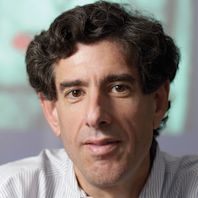
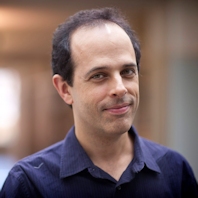

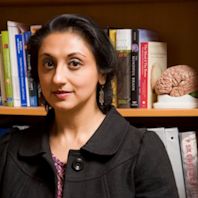

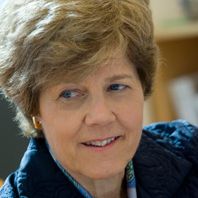


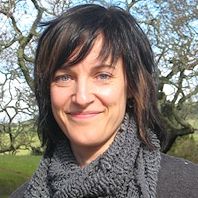
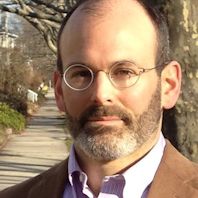
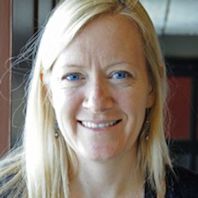

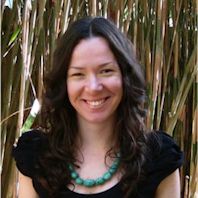
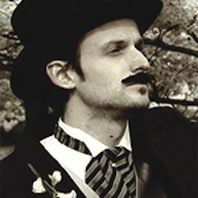
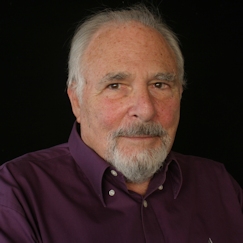



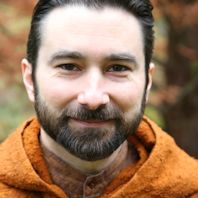

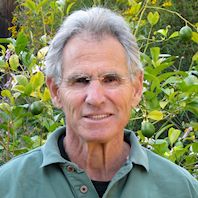
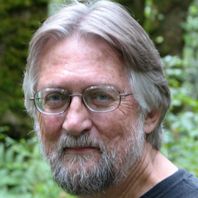
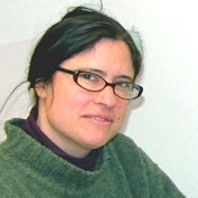
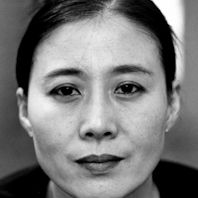
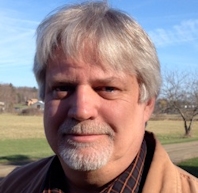

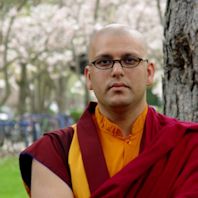
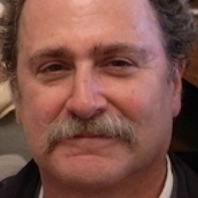

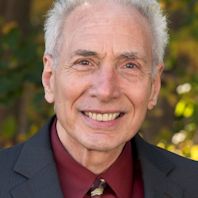

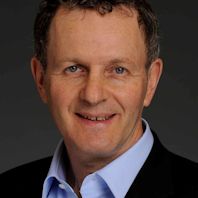
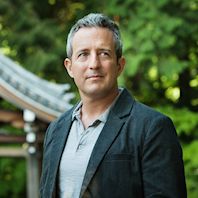





Follow
Mailing list